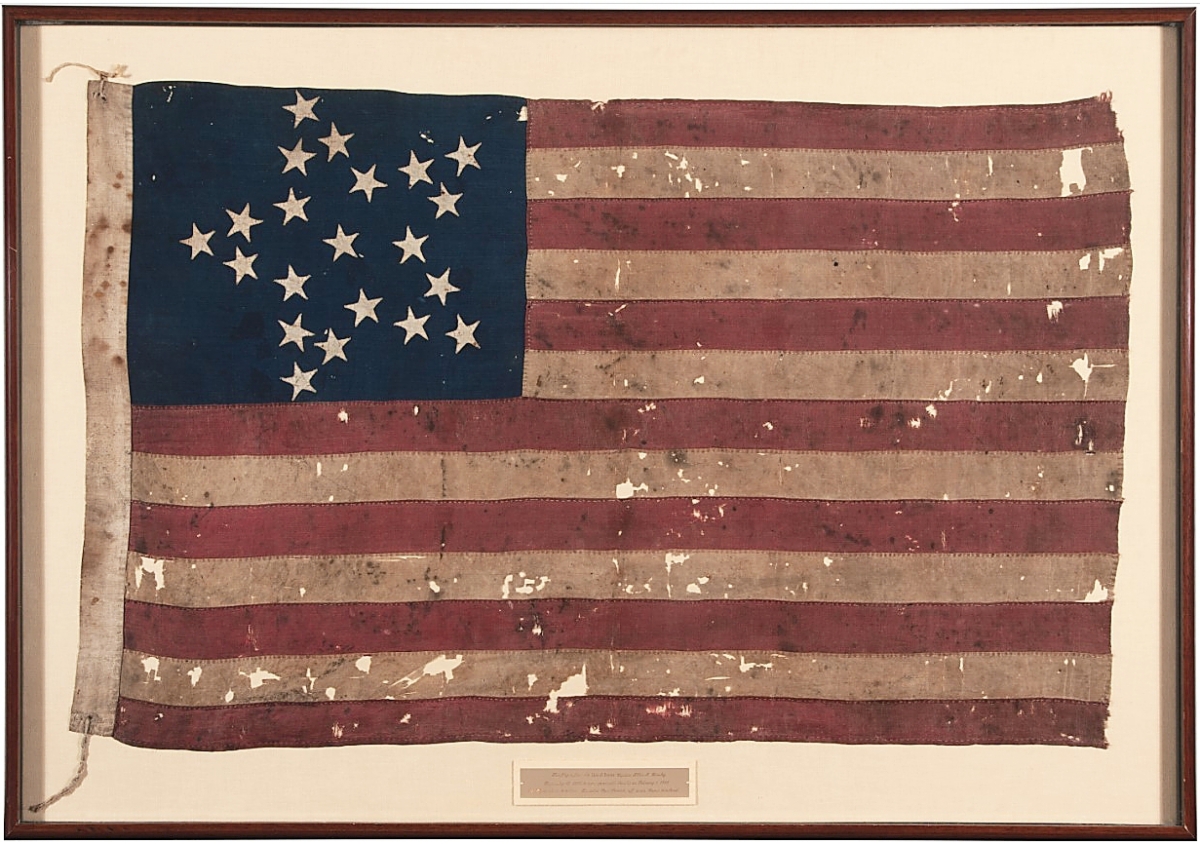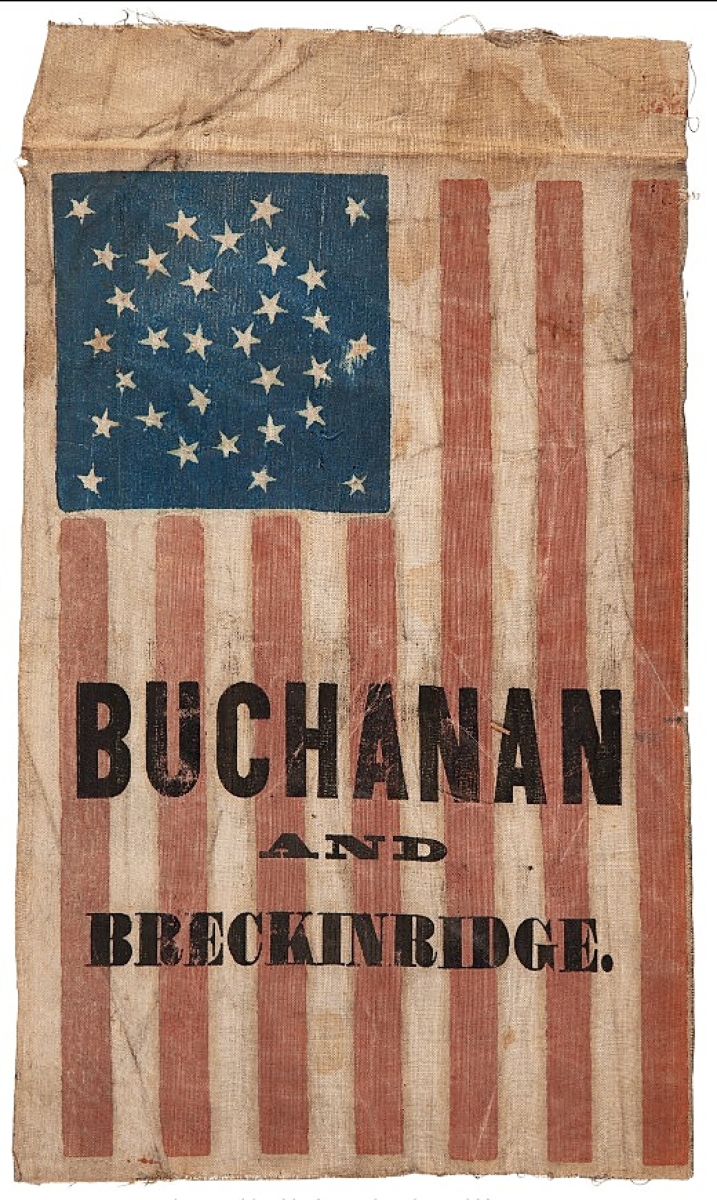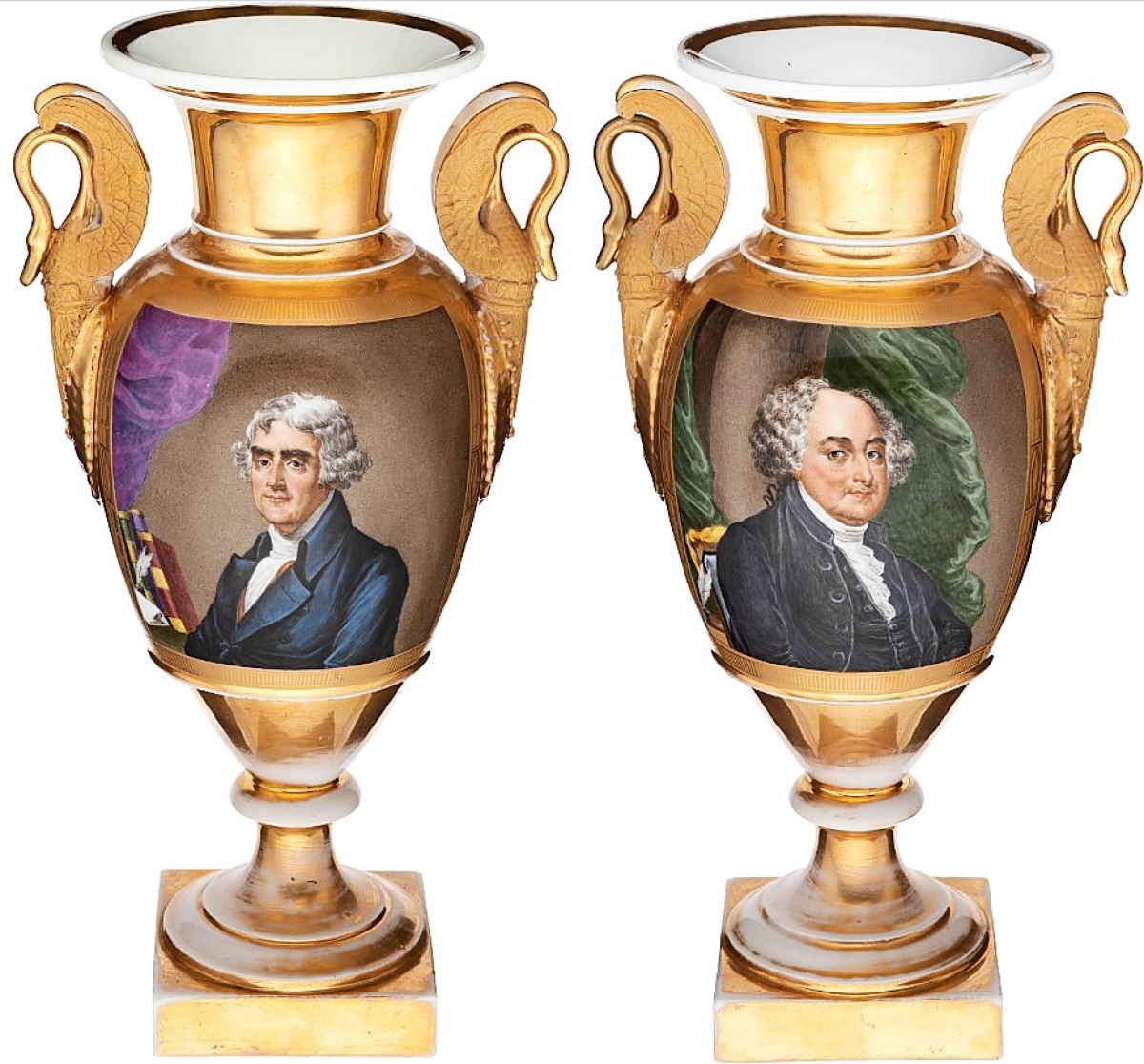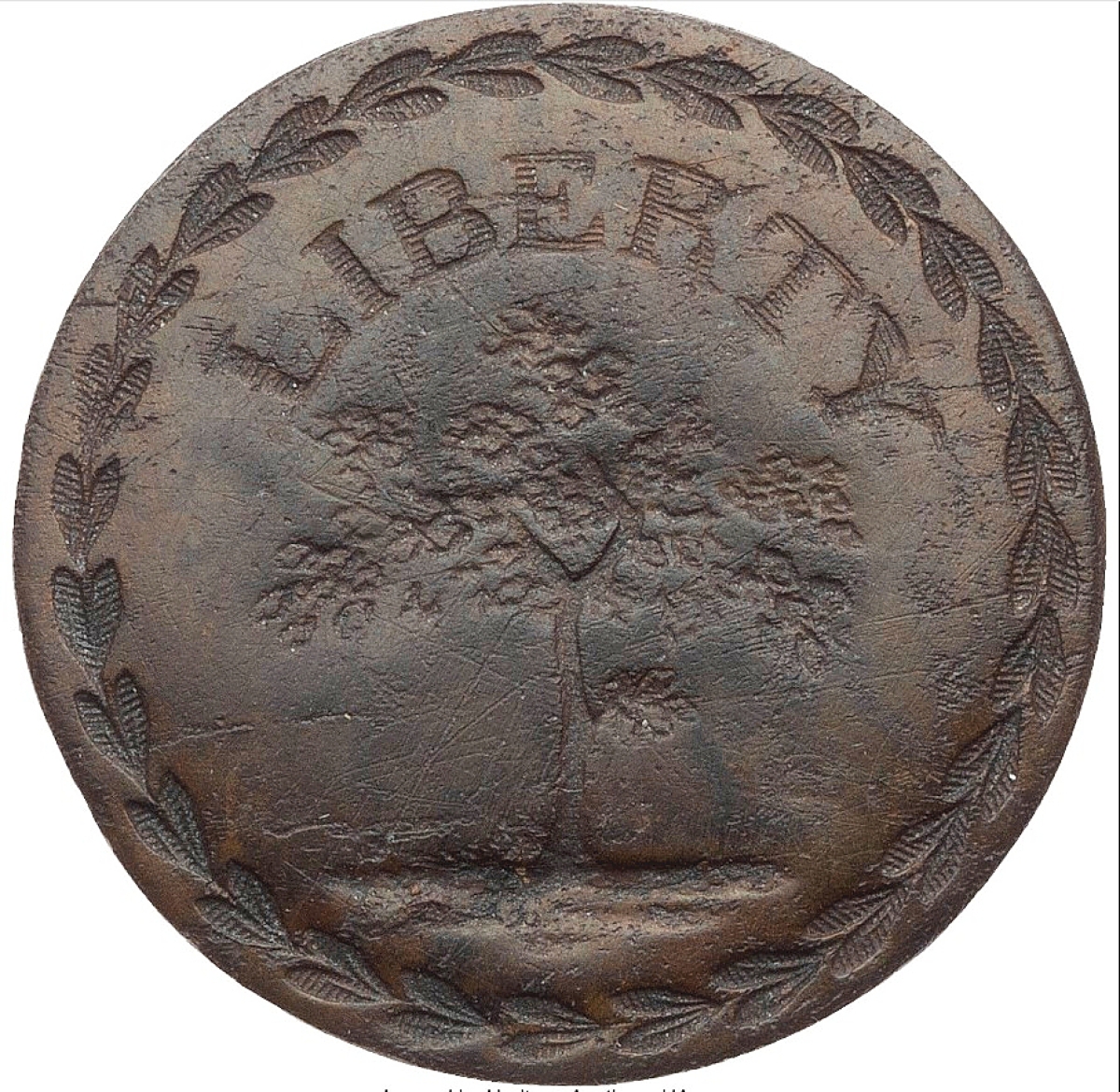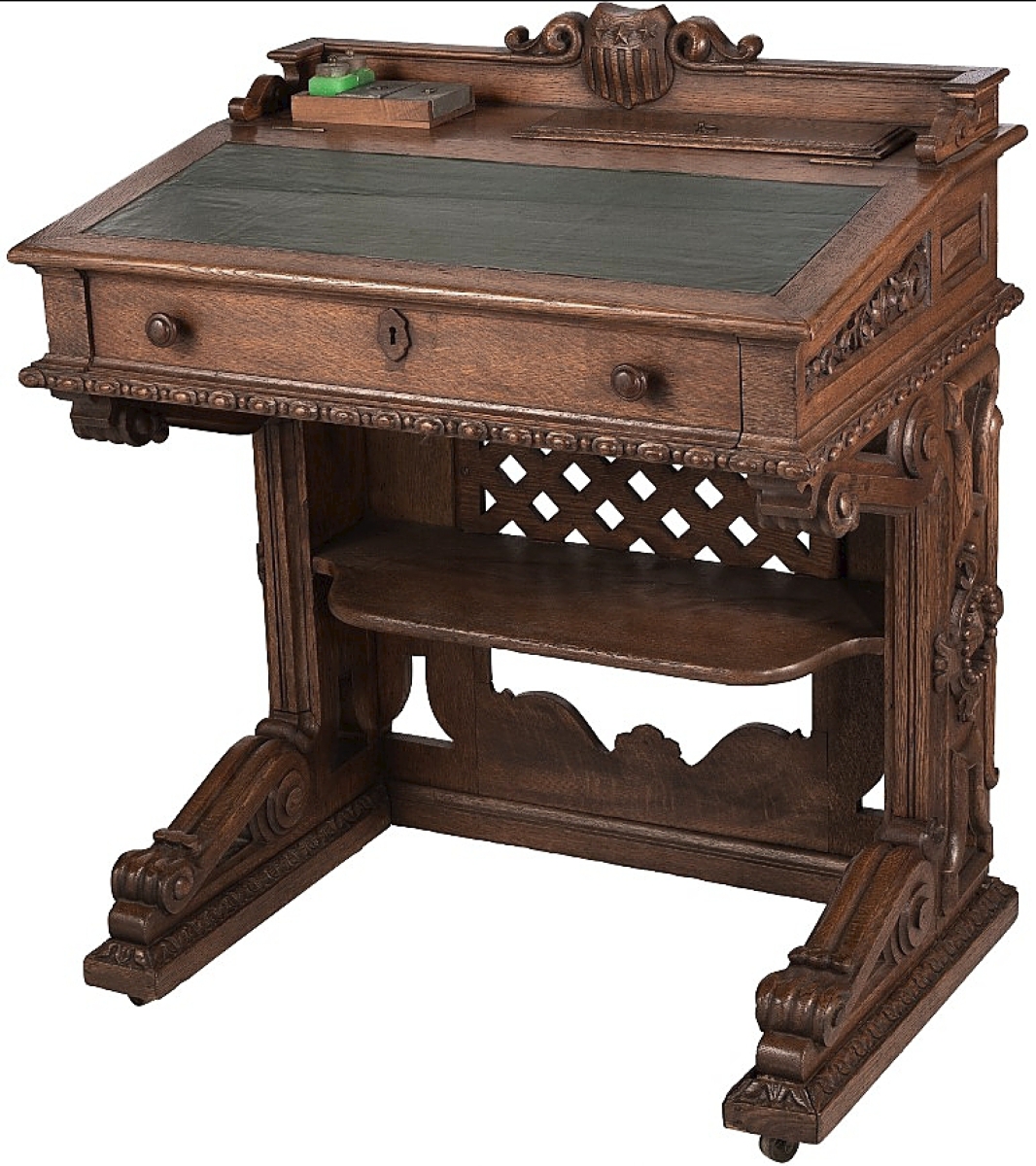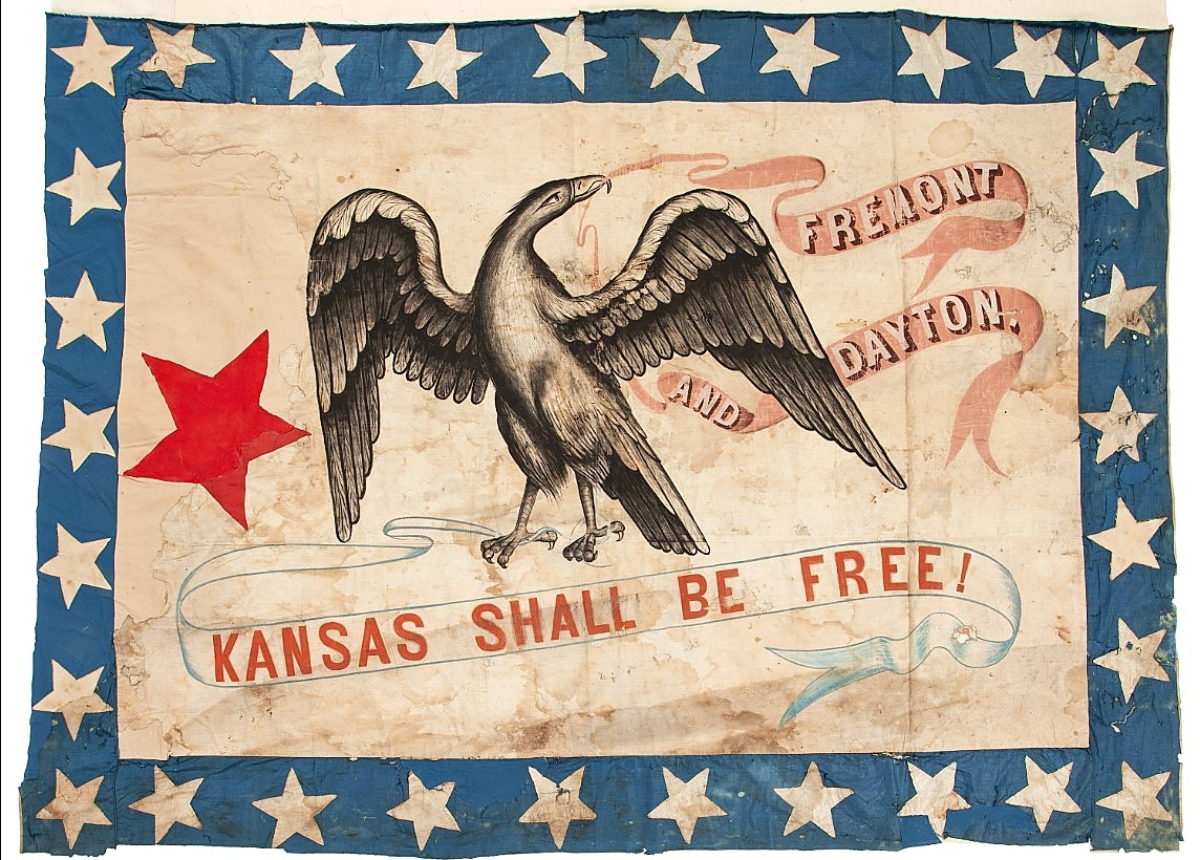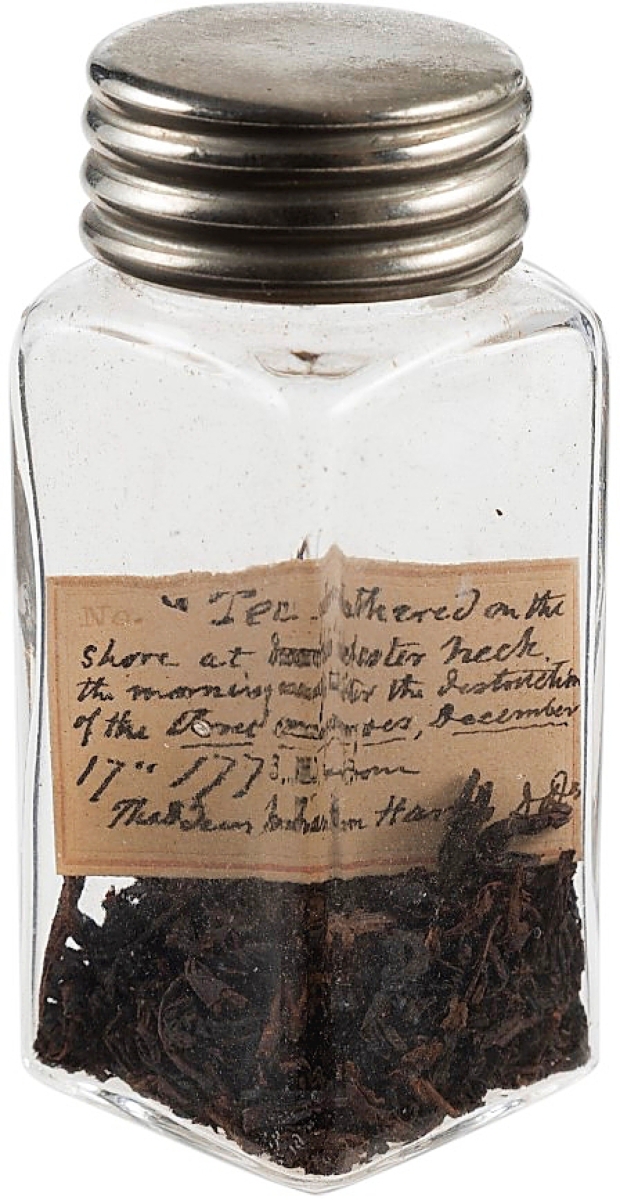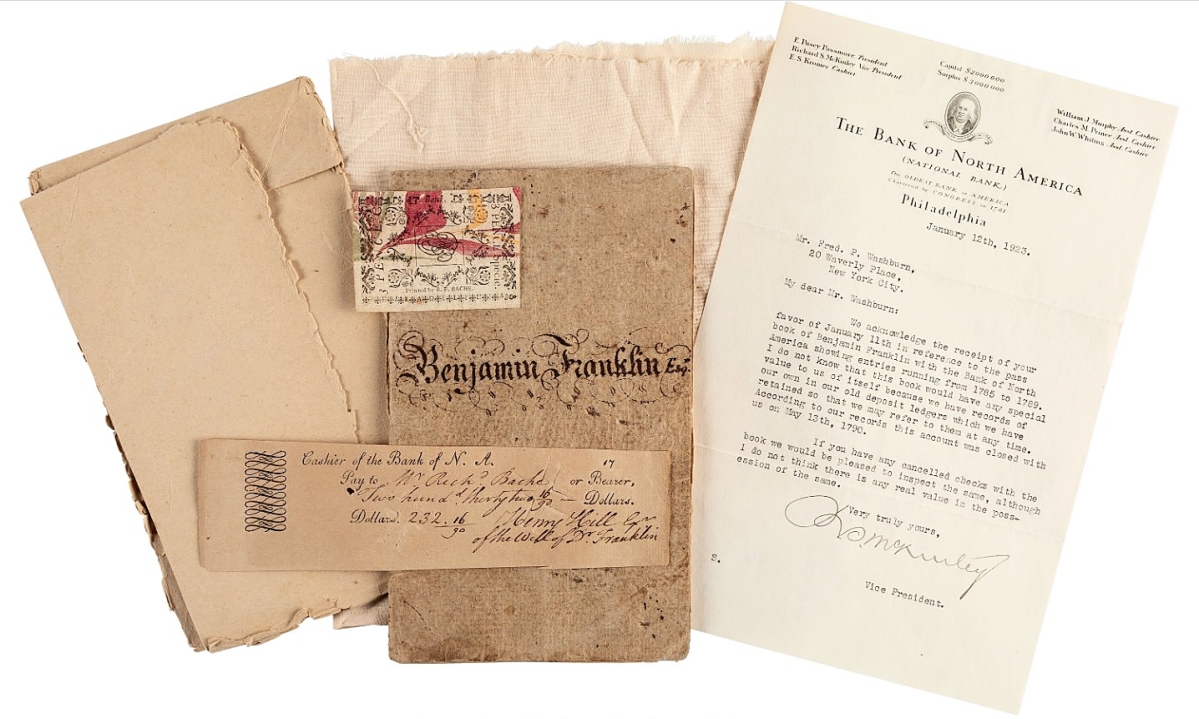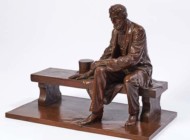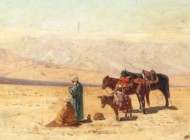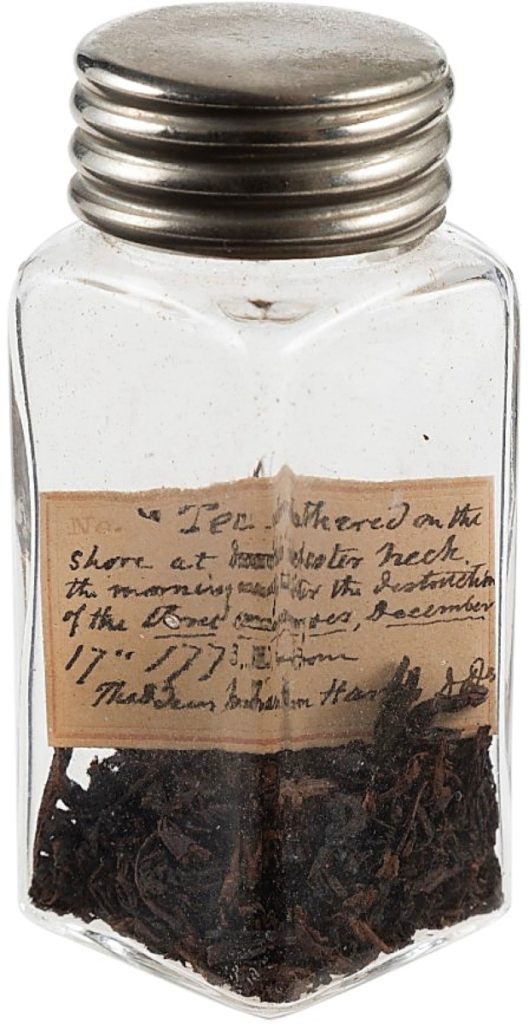
This bottle of tea from the Boston Tea Party was the surprise attack top lot at $87,500 ($10/20,000).
Review by Z.G. Burnett, Photos Courtesy of Heritage Auctions
DALLAS – On June 11, Heritage conducted its Americana & Political Signature® auction, showcasing rare historic artifacts from American history, many being one of a kind. Presidential campaign products, fine and decorative art, prime documents and even lots of Native American art were represented. With a 100 percent buy-through rate and nearly $1,586,000 in sales, Heritage was certainly living the American dream.
Much like its origins, the highest selling lot was a surprise: a bottle of tea leaves from the Boston Tea Party, collected on December 17, 1773 from Dorchester Neck, Mass., now South Boston. The bottle contains a handwritten provenance. The tea was given to Thaddeus Mason Harris (1768-1842), a founding member or the American Antiquarian Society. In 1895 this group gave the bottle to Frederic Ward Putnam (1839-1915), known as “the father of American archaeology.” The bottle sold for $87,500.
The second highest lot was a favorite of the Americana department, a double-sided anti-slavery promotional banner for first Republican presidential candidate, John C. Frémont (1813-1890). “John Frémont was a very important figure in the history of California and the Western United States,” Heritage’s Americana director Curtis Lindner said. “He was an outspoken opponent of slavery, making him part of one of the most important political movements in US history.” The exceptionally rare banner was in excellent condition, and its colors flew at $62,500.
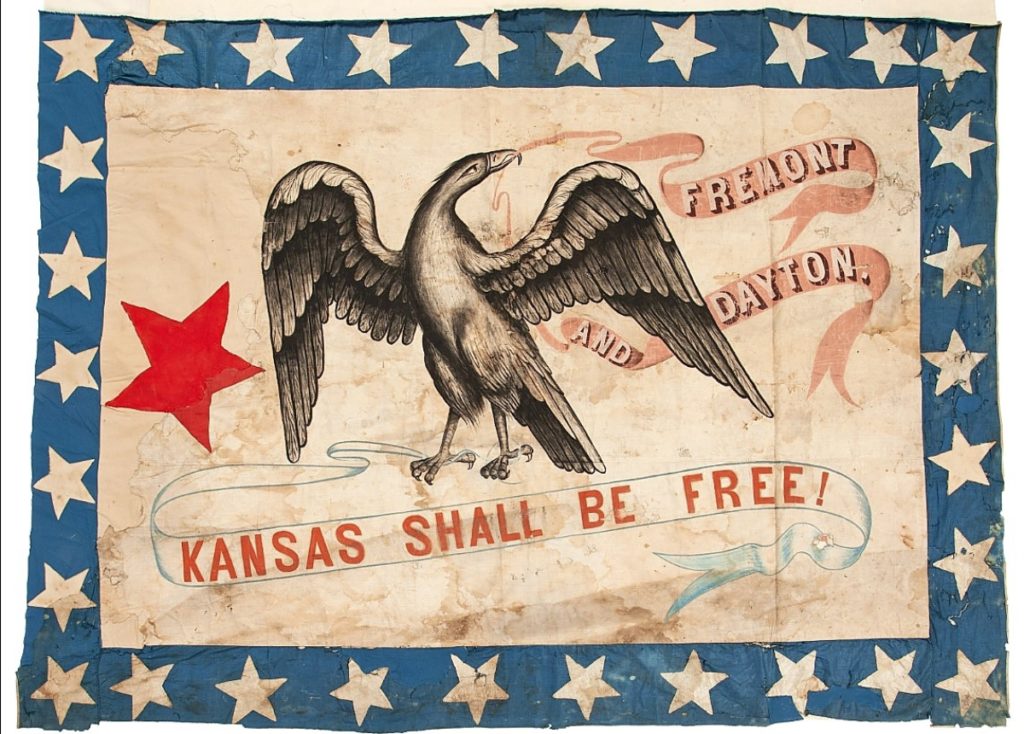
A remarkably preserved presidential candidate flag for John C. Frémont also came in second place at $62,500.
The third ranked lot, a 21-star flag from the wreck of the Lion was more grim in association. On February 1, 1835, the Lion set out of Boston and ran aground when it reached Northern Ireland. The ship was broken to pieces by the tide while onlookers helplessly watched from the shore, and 11 of the 15 crew members were lost at sea. The flag itself is significant as 21-star flags were only made for one year, 1819-20, and it delivered at $55,000.
Like his numerous sayings, Benjamin Franklin (1706-1790) remains a prevalent figure in contemporary American society. Especially so for the buyer of the group lot containing documents and currency associated with Franklin, which sold for $52,500. The lot contained his account ledger from the Bank of North America, a check from that same institution to “Mr Richard Bache” and a three-pence piece of paper currency.
Next on the leaderboard was an oak desk from the House of Representatives, used from 1857 to 1873. The desk was designed by Thomas U. Walter (1804-1887), who also designed the enlargement of the Capitol building. It was sold in 1873 when the House was refurbished, and examples reside in the Smithsonian Institution as well as in other US museums. The desk carried out at $38,750.
Another flag soared in the top lots, an 1856 “Buchanan and Breckinridge” campaign flag. Documented in Threads of History: Americana Recorded on Cloth, 1775 to the Present by Herbert Collins (1979), the design is unusual due to the candidates’ names being printed vertically on the flag instead of horizontally. According to the catalog, the flag may be the only example of this orientation, and it was elected at $37,000.
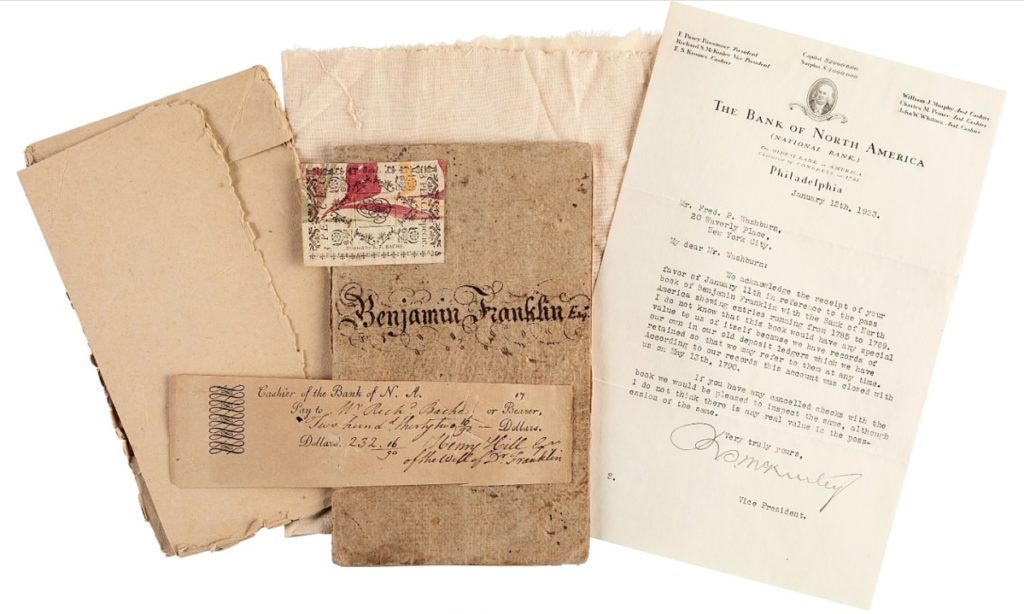
“A penny saved is a penny earned,” or so the new owner of Benjamin Franklin’s account ledger can read in this group lot that achieved $52,500.
Also presidential, but perhaps even more stylistically out of character for at least one of the men depicted was a rare pair of portrait urns from Paris Porcelain, portraying Thomas Jefferson (1743-1826) and John Adams (1735-1826), circa 1826-30. Formerly friends and colleagues during their diplomatic appointments in France throughout the American Revolution, Adams and Jefferson became political opponents in the years following, with Jefferson ousting then-President Adams from a second term. The two reconciled in their later years and even died on the same day, which was also the 51st anniversary of the signing of the Declaration of Independence. Paired in death as well as in life, the urns sold for $31,250.
Revolutionary relics were strong in this sale, including a lock of George Washington’s (1732-1799) hair and a rare, undocumented Liberty Tree patriotic button. The hair boasted an impressive provenance, descending through the Washington family; it was given to his niece, Jane Washington, following his inauguration in 1789. She wore the hair in a gold locket since the event, and it was passed down and framed in 1921. This mounting sold for $25,000. The button was far more mysterious, with no appearance in any of the references the Americana department consulted and achieved $23,750.
Prices quoted include the buyer’s premium as reported by the auction house. For information, 214-528-3500 or www.ha.org.

